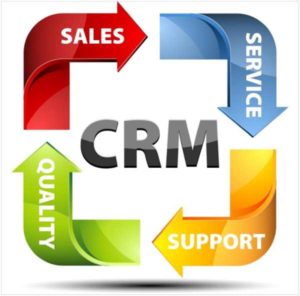11 Factors to Consider Before Starting a Business in 2024
Starting a business is no easy feat- it requires considerable time and effort. There might be challenges that keep coming up and hurdles to navigate before you can establish yourself as a successful entrepreneur with a flourishing company.
Since statistics show that the number of small and medium-sized enterprises (SMEs) worldwide keeps rising, there’s no doubt that competition is rampant in the corporate sector, and you’ll have to stand out from other similar businesses. If you’re interested in starting a business, keep reading as we delve into everything you need to consider before you can take this step.

Source: https://unsplash.com/photos/btdRU178eLo
1. Passion
The great thing about running a business is the ability to convert your passion into a profession. As an employee working in someone else’s company, your day is typically filled with finishing required tasks, and you may not be doing something you’re interested in. In contrast, being a business owner lets you prioritize your interests and dreams to create a product or service you love. That doesn’t mean you can opt out of the tedious administrative obligations, and you should be prepared to develop business strategies, file taxes, keep records, and much more.
2. Business Structure
One of the most essential things an entrepreneur should determine is whether they’ll work alone or with any business partners. If you and a friend plan to open a business together, you should research the type of business structure that aligns with your situation.
Partnerships are generally well-suited for individuals who want to share risk and decision-making evenly. There’s also the option of looking into a limited partnership or a corporation, as this allows others to invest in your business with little to no power over workflow operations.
3. Business Brand and Vision
Think of the kind of company you want to run and what makes you the best person to start this company. Maybe you plan to serve in the neighborhood you live in, or your network requires the service you’ll provide. Do you have several years of experience in similar industries for other businesses or a formal education in the manufacturing techniques to be applied to your own business? Perhaps, it is simply the passion you’re bringing to the project.
Whatever the reason, consider how you can set yourself apart from your competitors and bring something unique to the table that hasn’t been done before. Your brand’s value can only contribute to the business if you make a set plan and determine what you alone will contribute.
4. Funding and Costs
Making a budget of how much you’ll need for every aspect of your business is recommended. Will you cover the costs using a business loan from a bank, your personal savings, government grants, or credits from family or friends? It’s also crucial to cover other basics. For example, ask yourself: Can I be my own registered agent to save money or hire a professional?
Once this is decided, start with the technology or equipment you’ll need for manufacturing and then move on to the necessary raw materials and how often you’ll need to purchase them. If you want to open a physical location, estimate your rent and maintenance costs. On the other hand, an online business still has to cover shipping or vehicle costs, so write those down. Then, you should include employees’ pay and services like advertising, design, web hosting, or marketing.
5. Financial Obligations
If you’ve taken a business loan from the bank, you’ll likely have to pay back the loan with interest for several years- an additional cost to your budget. Suppose you obtain a loan from someone you know. In that case, you might get a lower interest rate.
To prevent disagreements and problems, establish a formal arrangement on how you’ll pay back all the borrowed money. Research any grants you’re offered before accepting them to determine if you fulfill all their obligations.
6. Location
Where you open your business matters; for instance, a storefront’s location appeal should align with the rent you can afford. You can also work from home if you plan on providing a traveling service or shipping your products. If your operations require huge equipment, finding a bigger space where sending out shipments or taking deliveries is also convenient is in your best interest.
7. Supplies and Sourcing
Consider what you need for every stage of purchasing and manufacturing, such as equipment, materials, and technology. While a store typically integrates decorations, payment counters, and displays, a restaurant requires specialized storage and cooking equipment- it all depends on the industry you want to work in!
Make a list of all the raw materials and packaging you’ll use. If you want specific fax machines, computers, prints, or phones, add these, too, and any company vehicles you plan to travel with. Next comes the aspect of whether animal testing, vegan processing, or organic sourcing is relevant to you and impacts purchasing decisions. Before purchasing these materials, try to see or test them if possible, as some suppliers send free samples or showcase equipment at trade shows.
8. Regulations
Zoning regulations always influence a physical location, so make sure to research local business laws, especially if you want to avoid fines or violations. There are industry-specific laws, such as liability laws about customer obligations or food preparation standards. Serving alcohol or offering certain services might require you to obtain permits. Knowing your local, state, and federal taxes is a great way to set appropriate business prices.
9. Look Into Outsourcing and Optimization
Rather than wasting time trying to do things you aren’t good at, you should outsource them to focus your energy on other aspects of the business and increase productivity. In this time of technological advancement, don’t hesitate to automate any processes that can be automated. There’s no point sending tedious emails to customers separately when you can automate them and deliver the message to everyone simultaneously.
10. Employees
As your company starts to grow, so will the amount of work, and you’ll quickly register that you need a team. Choosing the wrong staff can detrimentally affect your workflow process, which is why you must tread with caution.
Hire people whose goals and work ethic align with yours and determine whether they are ready to take on the responsibility of helping you run the business. You can bring someone in temporarily to help during a busy season or work with freelancers for specialized work. It’s also important to know the local employment laws before hiring.
11. Market and Targeted Audience
There’s a broad market to choose from when deciding upon who you should advertise your products and services to. Your targeted demographic depends on the amount of geographic range you can cover and the type of products or services you sell. You’ll need to narrow down your attention to a specific audience and then promote your brand to them. Keep the following things in mind when thinking of potential customers:
- Income level
- Age
- Hobbies
- Location
- Political and religious convictions
- Values
- Work
- Other interests
This way you can make more informed decisions about your location, packaging, and marketing.
Endnote
Running and planning for a business can be stressful and overwhelming, but there’s no universal approach. However, there are some common rookie mistakes individuals make when starting out in the corporate sector. The above tips can help increase your chances of pursuing your business dreams successfully.
While there will definitely be hurdles to overcome and problems to solve, the more knowledge you have early on, the more likely you are to make informed decisions and ensure your business experiences the snowball effect.








